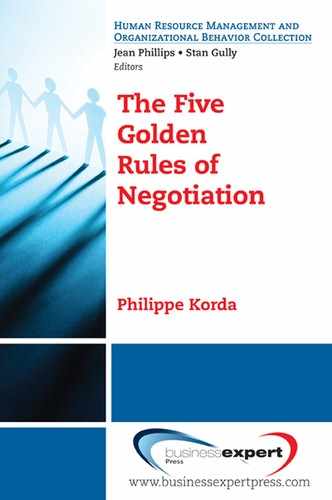Avoiding the Traps of the Professional Negotiator: Four Recommendations
- Keep your cool. Do not allow yourself to be overcome by either enthusiasm or anger. Remain an observer as well as a participant in the negotiations.
- Show empathy. Before and throughout the discussions, ask yourself what you would do if you were in the other party’s shoes. What would be your objectives? How could you achieve them? Judging the other party serves no purpose. Trying to understand him is more useful.
- Talk little, listen a lot. Everything that you say may be noted and used against you, particularly if it involves information about your internal constraints, your price or cost structure, your processes, your alternatives, and so on.
- Be patient—and show it. Do not be in too much of a rush to complete the deal. Even when you are nearing the finishing line, be prepared to start again from scratch if the situation so requires. Do not make any major decision without taking the time to reflect and consult.
..................Content has been hidden....................
You can't read the all page of ebook, please click here login for view all page.
